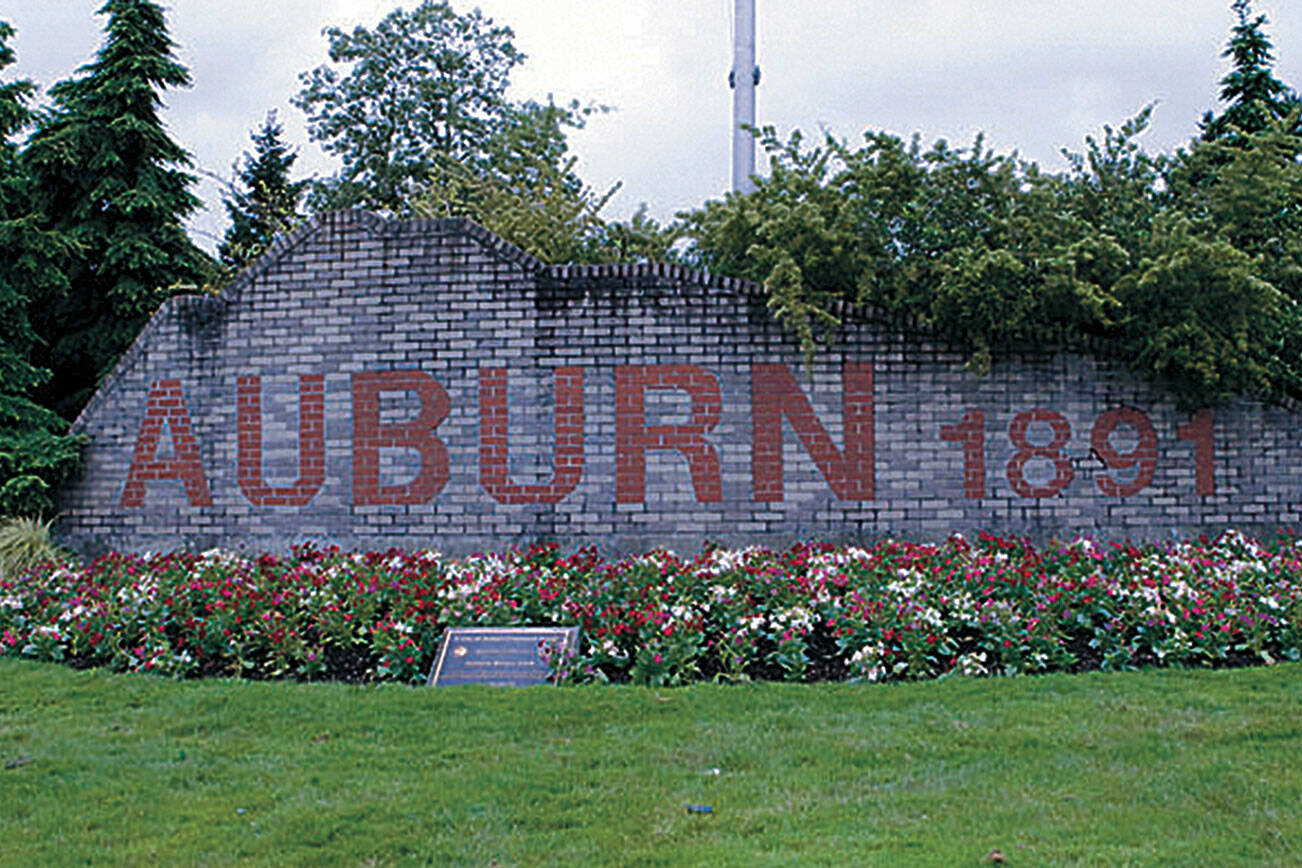For months, Auburn leaders have been trying to determine what the city’s wants and wishes will be for the upcoming legislative session in Olympia, which begins Jan. 3 and is expected to end by April 27.
As of Monday, lawmakers in Olympia had not yet firmed up plans for mitigating the projected $10 billion to $12 billion gap in the biennial budget.
Right now, said Administrative Director Dana Hinman, many ideas are floating in the ether above Olympia, but nothing definite, which leaves Auburn in limbo. Had voters passed all the statewide initiatives on the the Nov. 5 ballot, which sought to repeal some capital gains taxes, climate taxes and estate taxes, Hinman said “it could have been a lot worse.”
Among Auburn’s priorities are a number of carryovers city leaders have sought for years. Generally, they fit into six major classes: public safety; regulatory and land use; public works, transportation and infrastructure; parks and open spaces; and social services budget and finance.
Public safety
“We’re still looking for technical fixes in some of the recently-passed policing bills, as some things are kind of confusing, or may not be working as well as lawmakers had hoped or when the law was passed,” Hinman said.
Auburn will join in efforts to obtain funding that will help with some of the staffing challenges facing its own and other police departments throughout the state. Also, alongside King County, the city will lobby for local funding mechanisms for public safety, whether that mechanism involves a council mandate, sales tax, or impact fees for public safety.
“We’ll definitely advocate for more public-safety funding and … advocate for solutions to address the drug crises in local communities and mitigate the need for a police response for mental health, behavioral health, homelessness issues, and to make other options available for people to get the help they need,” Hinman said.
On the land-use side, the city has asked the Legislature for years to slow down on the land use and zoning laws it passes, as those ask a lot of planners and public works staff who have to keep up with all the changes and adjustments. That is, Hinman said, the city wants and needs more time to respond so it can adapt to those changes.
Also on the land use side, the city will ask lawmakers to reduce the regulatory burdens that hinder the creation of affordable housing.
It’s one of those conflicting things in the Legislature, Hinman said, “in that on one side they’re passing regulations that make building very expensive, but at the same time, they want builders to create affordable housing, and those two things are in direct conflict. So, one of the ideas is to simply [say] to legislators, ‘Well, if you want affordable housing, you’re going to have to give us regulatory relief to make it happen, to make it pencil for the builders.”
A related ask Auburn has been making for years, and expects to make again this session, is for a degree of funding to rehabilitate existing affordable housing, which is one of those problems city officials believe the Legislature tends to overlook. That’s because cities, especially in South King County, Hinman said, have naturally-occurring affordable housing, but those people who own it don’t have many resources to make improvements to the housing that would make it much more livable.
Public works, transportation and infrastructure
Another item that relates to public works, transportation and infrastructure will ask lawmakers to protect the many funding sources out there that support local transportation projects. The city is a bit anxious going into this legislative session, Hinman said, because of the aforementioned $10 billion to $12 billion funding gap, and the fact that lawmakers have demonstrated many times a penchant for raiding the public works trust fund.
“We’re hoping that doesn’t happen, but we will certainly urge that those funds stay in place for local projects,” Hinman said.
The city will also lobby for a 1 percent aviation fuel tax that would go to the Washington State Department of Transportation to support airports. Airports are expensive, Hinman said, and the current funding sources out there are having trouble meeting their many needs. The city will also lobby to maintain the current federal timeline for low-lead aviation fuel.
A final request will be to provide greater support for behavioral health programs, and for support to encourage and incentivize people to go into those services. For many years, Hinman said, Auburn has asked legislators to create laws that would allow cities to hire their own mental health professionals and designated crisis responders, but to date without success.
Hinman noted that Auburn is fortunate to have members of the Legislature from the 30th, 31st and 47th districts in key positions to support its causes.
One of them is Sen. Claudia Kauffman, (D-47th District) who hopes to chair the Business, Financial Services and Trade Committee, and serve in a leadership position as the liaison to tribal nations. There is likewise recent Auburn City Councilmember Chris Sterns, (D-47th District) who has been designated speaker pro-tempore in the Legislature, second in command behind the speaker of the House
The two positions above are designate positions only, which the Legislature will officially vote on when it convenes in January, Hinman said. Also, Rep. Drew Stokesbary (R-31st District) will be the minority leader, and Sen. Claire Wilson (D-3oth District) will be the Senate Democrats’ whip.
“Pretty high-flying positions,” Hinman said, “and it’s nice to have people that we know and respect in those positions to represent us in our three districts.”



